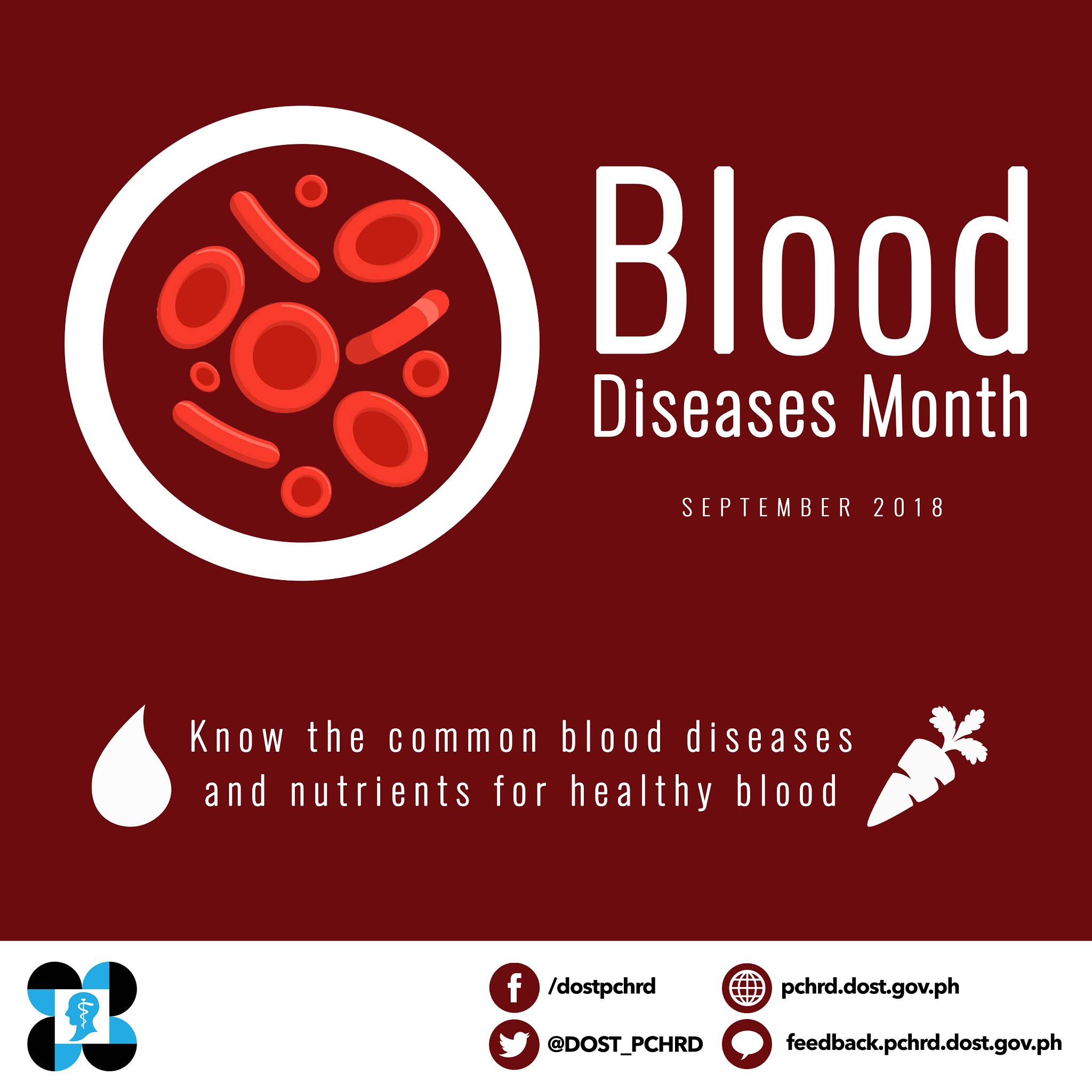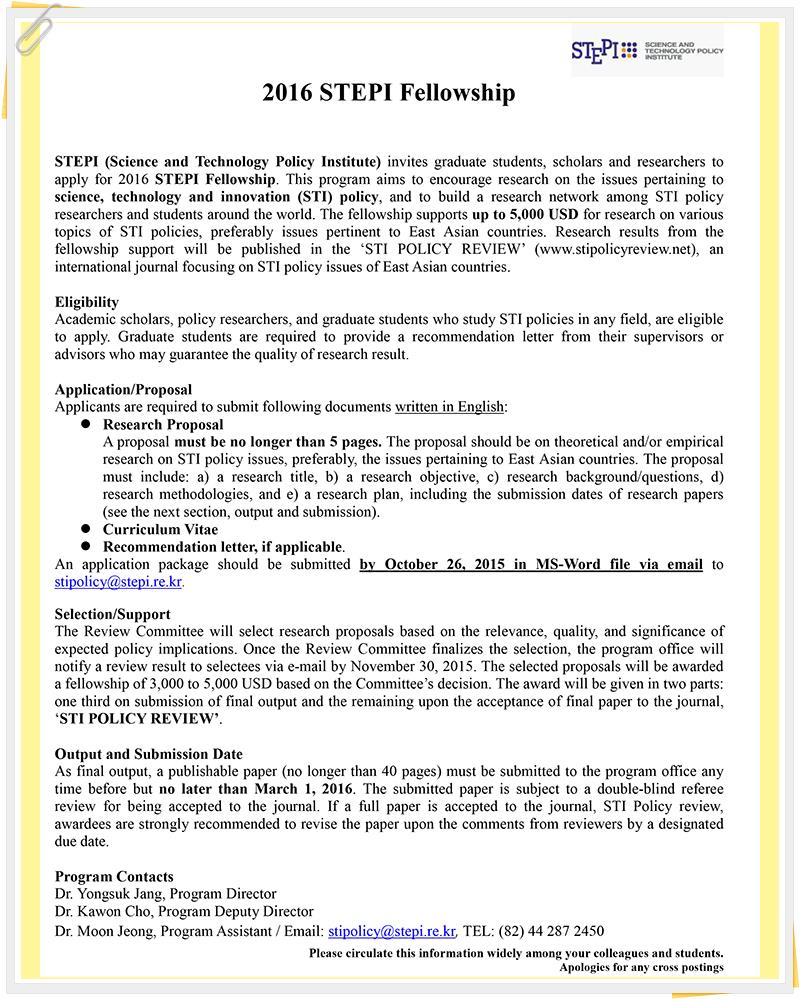Know the common blood diseases and nutrients for healthy blood
Blood plays important functions for the body. Composed of plasma, white blood cells, red blood cells, and platelets, blood circulates through our body and transports oxygen and nutrients to the tissues and removes waste from the cells.
As we celebrate Blood Diseases Month by virtue of the Proclamation No. 1833 declared by the former President Gloria Macapagal Arroyo in 2009, here are some common blood diseases and ways to keep your blood healthy:
Common blood diseases
- Anemia, the most common blood disorder in the general population, is a condition in which the body lacks enough healthy red blood cells or hemoglobin. Hemoglobin is an iron-rich protein inside the red blood cells that carries oxygen throughout the body.
A person with anemia experiences shortness of breath, fatigue, irregular heartbeat, headache, chest pain, dizziness, pale skin, and insomnia.
In treating anemia, the primary aim is to increase the number of healthy red blood cells in the body. Depending on the type of anemia, common treatment for anemic persons includes iron supplements intake, change of diet, blood transfusions, and chemotherapy or bone marrow transplant.
- Hemophilia is a genetic disorder which affects the blood's ability to clot due to low levels of blood-clotting proteins.
Signs and symptoms of hemophilia varies on the levels of clotting factor. People with mild deficiency may bleed after a surgery or trauma, while in severe cases, spontaneous bleeding occurs.
There is no cure yet for this condition. The only treatment available for hemophilia is replacement therapy wherein, concentrates of clotting factor VIII (for hemophilia A) and IX (for hemophilia B) are slowly dripped or injected into the vein. This helps in replacing the defective clotting factor of the blood.
- Leukemia is a type of cancer which affects the blood and bone marrow. The cancer happens when the bone marrow produces abnormal white blood cells. These cells overpower the healthy blood cells and continue to increase and occupy more space, making it hard for healthy white blood cells to function normally.
Leukemia comes with two different types- acute and chronic. Acute leukemia grows rapidly while chronic leukemia grows slowly.
The causes of leukemia are still unknown. However, there are some factors that increases the risk of developing the cancer such as exposure to radiation and chemicals like benzene, cigarette smoking, hair dyes, family history of the same case, and genetic disorders such as down syndrome. Early signs of this condition include weight loss, fevers or chills, frequent infections, bone and joint pain, bleeding and bruising problem, tiredness, and weight and appetite loss.
Treatment for this condition depends on the type of leukemia and the person's health treatment capability. Types of treatment involves chemotherapy, radiation therapy, immune therapy, stem cell therapy, and surgery.
Nutrients for healthy blood
Changing your lifestyle especially your diet could help keep your blood on track and healthy. Foods rich in iron, vitamin B-12, vitamin B6, vitamin A, and vitamin B-9 are essential in order for your blood to function well.
Iron is an important nutrient that increases the production of red blood cells. Food rich in iron are red meat, organ meat, beans, cereals, tofu, dark chocolate, and dark green leafy vegetables such as spinach and cabbage.
Vitamin A is essential in normal development of stem cells into red blood cells. It is also needed for the immune system to function normally and actively. Foods rich in vitamin A include carrots, tuna fish, sweet potatoes, bell peppers, and dark leafy green vegetables such as kale and lettuce.
Vitamin B6 or pyridoxine is a water-soluble vitamin which supports glucose and protein metabolism. It also supports the production of hemoglobin, a protein molecule in red blood cells that carries oxygen. Vitamin B6 is essential in nurturing and maintaining blood health. This vitamin can be found in chicken, bananas, tomatoes, whole grains, nuts, green beans, liver, and fish.
Vitamin B-9 or folic acid helps in protein metabolism and RNA/DNA production and repair. It is vital in making red blood cells. Best sources of folate include nuts, dark leafy green vegetables such as spinach, broccoli, lettuce, and edible greens such as asparagus, beans, and breads.
Vitamin B12 keeps nerve tissues healthy and sustain blood cell production. Animal products such as fish, red meat, eggs, and dairy products like milk and cheese naturally contains vitamin B-12
Blood diseases could be very dangerous especially if not treated properly and immediately. Celebrating Blood Diseases Month serves as an avenue to raise people’s awareness and understanding of blood-related diseases.
In support with its advocacy of disseminating health research information, the Philippine Council for Health Research and Development invites medical and research institutions and practitioners, universities, laboratories, and other partner institutions to publish their researches and other health-related information in Health Research and Development Information Network (HERDIN), an online database that enables online publishing, exchanging, and dissemination of quality health information in the Philippines.
For more information HERDIN and other blood-related researches, visit HERDIN’s website at http://www.herdin.ph/
Source: American Society of Hematology (As written by Basierto, L.( 2018, September 18). September is Blood Diseases Month. Retrieved from http://www.pchrd.dost.gov.ph/index.php/news/6404-september-is-blood-diseases-month)







